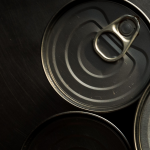Breffni didn’t like the treasure hunt worksheets handed out to children at museums.
He preferred to look at the exhibits himself and learn what he could from being close to them. He liked to smell them, and he imagined the pieces in their own story, far from the confines of the museum. Breffni liked to pretend.
Breffni loved the marble floors and crisp acoustics in the museums, especially inside the Dead Animal Museum, in Dublin. He loved the sound of the wooden door closing, and the sound of shoes clicking on the black and white tiled floors.
Breffni’s mother never took him to museums, but her older sister Sylvie did. Aunt Sylvie was kind and had nice eyes, but she asked stupid questions and told him off, even when he was on his best behaviour. One time, at the Dead Animal Museum, Aunt Sylvie asked him if he wanted a treasure hunt worksheet, and when he said no, she scolded him for being rude.
Was he supposed to lie, and say he wanted the stupid worksheet, when he didn’t?
After museum trips, Aunt Sylvie took him back to her house in Ranelagh where they would have tea in cups with saucers, and put linen napkins on their laps.
One time after tea, Aunt Sylvie asked Breffni to read a poem aloud to a neighbour, who was just stopping by. When Breffni said, “Aunt Sylvie, I can’t read,” again he was scolded for being bold, and told how he ruined a perfectly fine afternoon.
But he couldn’t read aloud when he was playing with the toy cars!
He didn’t mean that he wasn’t able to read, or read aloud, he was simply commenting that he couldn’t possibly do two things at once. Adults were hopeless sometimes; so impatient and so literal.
There were seven toy cars in all.
The cars were carefully kept inside a shoe box, with fine, orange tissue paper wrapped around them. There was a green MG, a yellow racing car with a number 35 on the side, a truck, two little no-name cars, and a yellow mini with tiny doors, that opened and closed.
Breffni never asked to play with the toy cars straight away.
He waited until after tea.
Then he asked, “Aunt Sylvie, can I play with the toy cars please?” and that’s when her face changed shape. Suddenly she looked happy, and younger and less worried about crumbs. She held his face close to hers, kissed his forehead and said, “of course Breff, let me get them for you”.
She drank more tea or wine, or smoked cigarettes and listened to music and Breffni played without disturbance. This was his favourite time. The cars could enjoy all sorts of mischief, fun, happiness, and grief. They could be good guys or bad guys, end dead in crashes, or just drive out on a Sunday.
One time, he stayed overnight when his mother had trouble with her nerves.
Aunt Sylvie read him stories from her grown up books, about evolution and classical music. Breffni didn’t really like these stories, but he liked how she read them to him. She read to him about the fish that came out of the ocean to become mammals, and he wondered if they were ever sad about it. Did they ever regret their decision and wish to go back to the water?
One time he saw Aunt Sylvie at the beach.
The three of them were at Dollymount, one afternoon in July, and while his mother fussed over the sandwiches, he and Aunt Sylvie played in the waves. She ran around all afternoon in her bathing suit. Her hair was a mess, and she had sand all over her nose and cheeks. She didn’t ask him silly questions, but just jumped over the waves and rolled around in the sand.
“Jump in the waves Breff, it’s amazing!”
The water splashed all up around them as they jumped over wave, after wave.
Eventually, she got tired and went over to lie in the sun with her sister. Breffni stayed at the water’s edge, collecting crabs and other wildlife in his bucket. He only managed to get one dead crab. This dead crab was really dead; his shell falling off and nearly in two pieces. Breffni thought it might be kinder to bury this crab, so that he could rest in peace, dignity, and grace.
Breffni began the preparations.
He buried the dead crab in the dryer sand away from the sea and set some small pebbles in a semi-circle above him, to mark the burial place, for other animals to come and pay their respects. Breffni said a few solemn words, like the priest did that time.
“This crab was a happy crab, who laughed and made friends, ate well, and would not want us to cry over him. Poor fellow. Do not be unhappy but celebrate his life”. He then finished the sermon by pretending to speak Latin, “amorus montimus.. morpheous, inpreudus” and by splashing the site with sea water from his bucket.
The tide was coming in now, and the air felt cooler.
It felt as if the sea were coming in from two different directions: the open sea straight ahead, and also from the shallow bathing area to the right. When both sides met, the sea felt rougher, and deeper than before the crab funeral. Even the colours had changed. Earlier they were light blue and grey, and now the water seemed a darker navy blue, and murky. The water seemed to be travelling too quickly, and Breffni didn’t like it.
When he looked up from the shore, he saw Aunt Sylvie and his mother laughing at some joke, and this made Breffni smile. The cumulous clouds were drifting away from the beach, and as the tide covered up the crab funeral, Breffni ran quickly towards his mother and aunt, who were waiting for him, with all the sandwiches.
…
Biography: Ruth Powell is a Welsh Irish writer living in Dublin. She enjoys reading, writing, sea swimming and collecting litter. Ruth was a member of the Dublin Writing Forum from 2012-2020 and has been published in several magazines. Her self published book, Smaller than us, can be bought in independent bookshops in Dublin.
…
Image: unsplash.com





